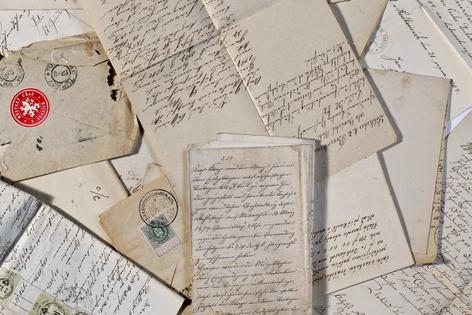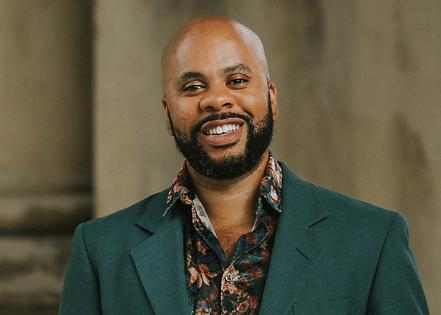Asking Eric: Mother torn about giving daughter deceased father’s letters
Dear Eric: "Jim" and I had a daughter, "Helena," who was 12 years old when her father died of cancer. Jim and Helena were very close, and she knew that she would receive a letter from her father on every birthday until she turned 18.
When she graduated college, I surprised her with another letter. In it, Jim talked about his own college experience and said how proud he was of her. My daughter has quoted this letter many times and it is one reason she still has a sense of connection with her dad.
Helena is now in her early 40s. She does not know this, but there are two more letters. Jim asked me to give her one on her wedding day, the other upon the birth of a child.
I don't think either event will happen – my daughter is most determinedly single.
I don't know what to do with the letters. I can't bear to destroy them. Yet, I worry if I give them to her, it will hurt her to find that her father imagined a different life for her than the one she has chosen.
A year ago, I had a health scare, and it made me concerned that, if I do nothing, my daughter may have to negotiate finding the letters in my absence as well. I don't know what to do.
– Undelivered Letter
Dear Letter: Your husband has given your daughter an immensely touching gift. I’d encourage you to give your daughter the letters, as soon as it feels right to you. When you do, explain your hope that they’ll be meaningful to her, nonetheless. But also put what you say into a letter, so that she has something to refer to if the last of your husband’s letters ever start to feel more complicated.
Tell her that these letters represent a desire to do something that is impossible for humans, but achievable for love: to reach out and touch the future. Your husband’s prognostication about weddings and children aren’t wish fulfillment so much as a reflection of his hope that your daughter is happy in life.
While the letters may contain hopes for a path she’s not taking, you can frame them as what they are: the continuing echo of his love based on the joy he felt marrying you and parenting her with you.
If you’re so inclined, you may want to write your own letters to her someday. Consider freeing them of life markers: “read this when you had a bad day,” “read this when you’ve done something impossible,” “read this whenever you want.”
Dear Eric: My husband and I have been married for 30 years. About seven years ago he was diagnosed with Alzheimer's and three years ago I placed him in a nursing home. Over that time, I've continued sending cards and money for important events to his children but rarely hear from them.
My biological kids and their children always say thank you. Now it has become a financial burden for me to continue all gifts. Should I tell them or just stop? I haven't heard from the steps for months but not sure what would be best. I am continuing with the biological children, is that unfair?
– Gift Dilemma
Dear Gift: It’s not unfair. Gifts aren’t owed; they’re expressions of love and extensions of relationships. Tell the steps about your plan.
Talking to them about your financial situation and your unmet hopes around gift-giving could also give you an opportunity to talk to them about how they’re showing up for their father and any support that you need in his care.
Dear Eric: "Happy Alone", who wrote about wanting to leave social situations because he has very poor hearing, may truly be happier alone, but if he'd like to try to participate in social gatherings or at least a conversation, he might try an app like "Live Transcribe".
My mother is very deaf (Cochlear implant in one ear, hearing aid in the other) and uses this app constantly. It's not perfect, and really not great in crowd situations, but it works well enough in one-on-one (-or two) conversations so that she understands what's going on.
Frankly, it's been a lifesaver for those of us who communicate with her regularly. And it helps her out at doctor's appointments too, because it’s a written transcript.
I hope this helps "Happy Alone," unless he's truly more of an introvert.
– Reader
Dear Reader: Thank you for this suggestion. Other readers also expressed how helpful transcription apps have been. Some also mentioned a function on Apple AirPods Pro2 models that can boost conversation in noisy places. “Happy Alone” should talk to his audiologist first about the latter option or other hearing treatments, like Cochlear implants, should he want to explore that route.
(Send questions to R. Eric Thomas at eric@askingeric.com or P.O. Box 22474, Philadelphia, PA 19110. Follow him on Instagram and sign up for his weekly newsletter at rericthomas.com.)
©2025 Tribune Content Agency, LLC.


















Comments